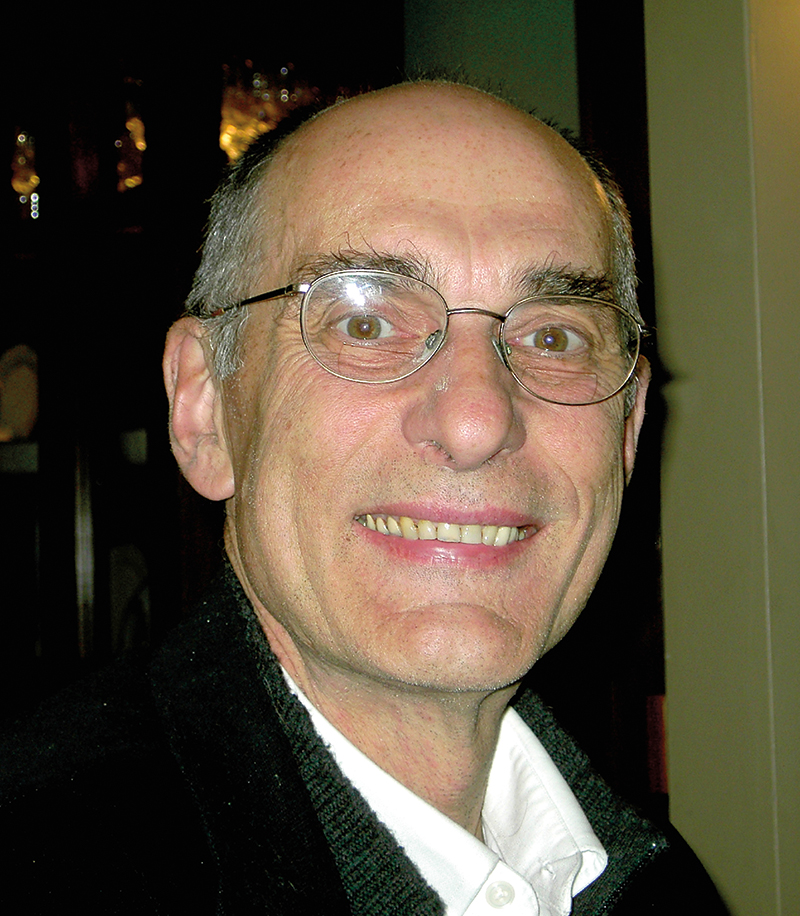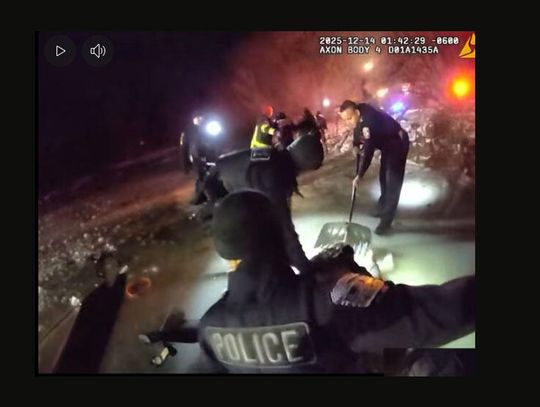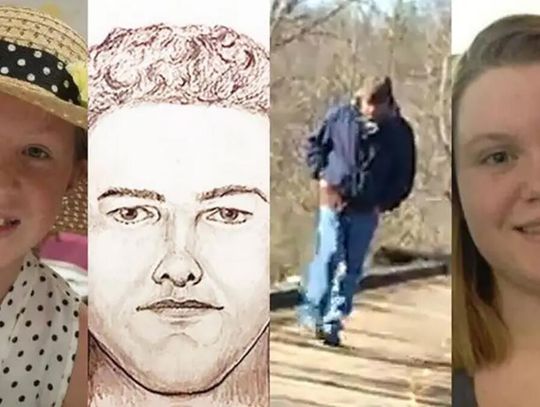Moi rodzice kochali Sylwestra.Uwielbiali przebierać się w wymyślne stroje. Tygodniami moja mama przeszukiwała domy towarowe i sklepy z odzieżą na Milwaukee i Chicago Avenue w poszukiwaniu najpiękniejszej sukni i butów, na które było ją stać. Przez wiele dni mój tata raz po raz polerował swoje buty i upewniał się, że jego najlepszy garnitur jest wolny od zmarszczek i rozdarć. Chcieli wyglądać tak fantazyjnie, jak Amerykanie, o których marzyli.Uwielbiali wytworną salę balową, do której chodzili w Nowy Rok, tę w Wicker Park przy ulicy Wood, na północ od Division. Uwielbiali spędzać długi wieczór z przyjaciółmi, świętując Nowy Rok. Ci ludzie – podobnie jak moi rodzice – byli ocalonymi. Przeżyli niemiecką inwazję na Polskę w 1939 roku. Przeżyli lata w niemieckich obozach pracy niewolniczej. Przeżyli, widząc, jak Niemcy i Rosjanie zabijają ich matki, ojców i siostry, i braci. Przeżyli trudy przyjazdu do Ameryki, jedynie z drewnianym kufrem wypełnionym kilkoma przedmiotami, które udało im się zgromadzić podczas lat spędzonych w obozach dla przesiedleńców w Niemczech, czekając aż któryś z krajów – takich jak Kanada, Australia czy Stany Zjednoczone ostatecznie potwierdzi: „Jasne, pozwolimy ci przyjechać, ale nie będzie łatwo”.Mama uwielbiała przetańczyć cały wieczór. Mój tata, dorastając, nigdy nie nauczył się tańczyć, więc moja mama tańczyła z każdym, kto wyglądał jakby potrzebował partnera. Tańczyła polki, walce i tanga. Uwielbiała słuchać zespołu na scenie, który grał stare przeboje, jak „Ta ostatnia niedziela”, „Ada to nie wypada” i „Dobranoc kochanie”, gdy wirowała na parkiecie ze swoimi przyjaciółmi, a nawet z nieznajomymi. Tańcząc, moja mama znów była tą małą dziewczynką, która uwielbiała tańczyć ze swoją siostrą Genią. Znów moja mama była tą samą dziewczynką, którą była, nim wojna zabiła jej siostrę i skończyła jej dzieciństwo.A kiedy moja mama tańczyła, mój tata wolał siedzieć przy stoliku ze swoimi kolegami i rozmawiać o wojnie. Rozmawiali trochę o tym, co sami wycierpieli, ale nie to było sednem ich rozmowy. Cierpienie, jakiego doświadczyli, było niczym w porównaniu z cierpieniem tych, którzy nie przeżyli. Mój tata i jego przyjaciele siadali przy stole, popijając drinki i rozmawiając o przyjaciołach, których stracili na wojnie, o Andrzeju i Piotrze, Januszu i Antonim, o ich cierpieniach, krwawieniu i umieraniu.Tańcząc, pijąc i dzieląc się opowieściami, moi rodzice i ich przyjaciele żegnali rok, który mijał i witali ten, który nadchodził.
Happy New Year!
My parents loved New Year’s Eve.They loved dressing up in their fancy clothes. For weeks, my mom would search the department stores and dress shops on Milwaukee Avenue and Chicago Avenue looking for the most beautiful gown and shoes she could afford. For days, my dad would polish up his shoes again and again and make sure his best suit was free of any wrinkles and tears. They wanted to look as fancy as the Americans they dreamt of being.They loved the spectacular ballroom they went to on New Year’s, the one in Wicker Park, on Wood Street just north of Division. They loved spending a long evening celebrating the coming year with their friends. These people – like my parents – were survivors. They survived the German invasion of Poland in 1939. They survived the years in the German slave labor camps. They survived seeing their mothers and fathers and sisters and brothers and friends killed by the Germans and the Russians. They survived the hardship of coming to America with nothing more than a wooden trunk filled with the few possessions they were able to gather together in the years they spent in the Displaced Persons camps in Germany waiting for some country like Canada or Australia or the United States to say finally, “Sure, we’ll let you come in, but it won’t be easy on you.”My mother loved to dance the evening away. My father never learned to dance growing up, and so my mother would dance with anyone who looked like he or she was in need of a partner. She danced polkas and waltzes and tangos. She loved to hear the band on the stage play the old songs like “To ostatnia niedziela” and “Ada, to nie wypada” and “Dobranoc, kochanie” as she swirled around the dance floor with her friends and even strangers. Dancing, my mother would once again be the little girl who loved to dance with her sister Genja. My mother would once again be the girl she had been before the war killed her sister and ended all of her childhood.And while my mom danced, my dad would sit at his table with his friends and talk about the war. They would talk a little about what they themselves suffered, but that wasn’t at the heart of their conversation. Whatever suffering they experienced was nothing compared to the suffering of those who hadn’t survived. My dad and his friends would sit at the table drinking their drinks and talking about the friends they had lost in the war, about Andrzej and Piotr and Janus and Antoni, about their suffering and bleeding and dying.And dancing and drinking and sharing stories, my parents and their friends said goodbye to the year that had passed and embraced the year that was coming.
John Guzlowski

amerykański pisarz i poeta polskiego pochodzenia. Publikował w wielu pismach literackich, zarówno w USA, jak i za granicą, m.in. w „Writer’s Almanac”, „Akcent”, „Ontario Review” i „North American Review”. Jego wiersze i eseje opisujące przeżycia jego rodziców – robotników przymusowych w nazistowskich Niemczech oraz uchodźców wojennych, którzy emigrowali do Chicago – ukazały się we wspomnieniowym tomie pt. „Echoes of Tattered Tongues”. W 2017 roku książka ta zdobyła nagrodę poetycką im. Benjamina Franklina oraz nagrodę literacką Erica Hoffera za najbardziej prowokującą do myślenia książkę roku. Jest również autorem serii powieści kryminalnych o Hanku i Marvinie, których akcja toczy się w Chicago oraz powieści wojennej pt. „Retreat— A Love Story”. John Guzlowski jest emerytowanym profesorem Eastern Illinois University.-John Guzlowski's writing has been featured in Garrison Keillor’s Writer’s Almanac, Akcent, Ontario Review, North American Review, and other journals here and abroad. His poems and personal essays about his Polish parents’ experiences as slave laborers in Nazi Germany and refugees in Chicago appear in his memoir Echoes of Tattered Tongues. Echoes received the 2017 Benjamin Franklin Poetry Award and the Eric Hoffer Foundation's Montaigne Award for most thought-provoking book of the year. He is also the author of two Hank Purcell mysteries and the war novel Road of Bones. Guzlowski is a Professor Emeritus at Eastern Illinois University.











